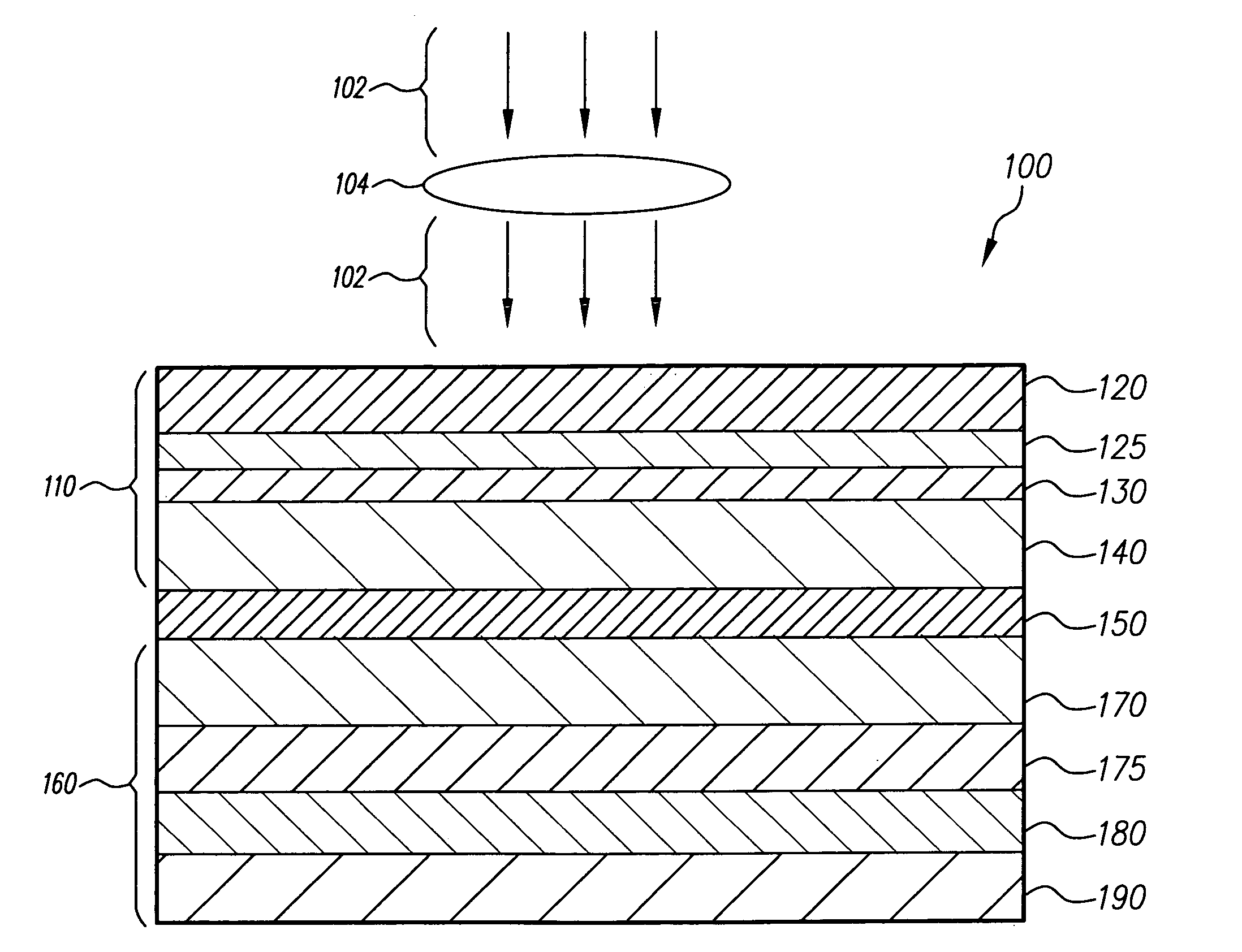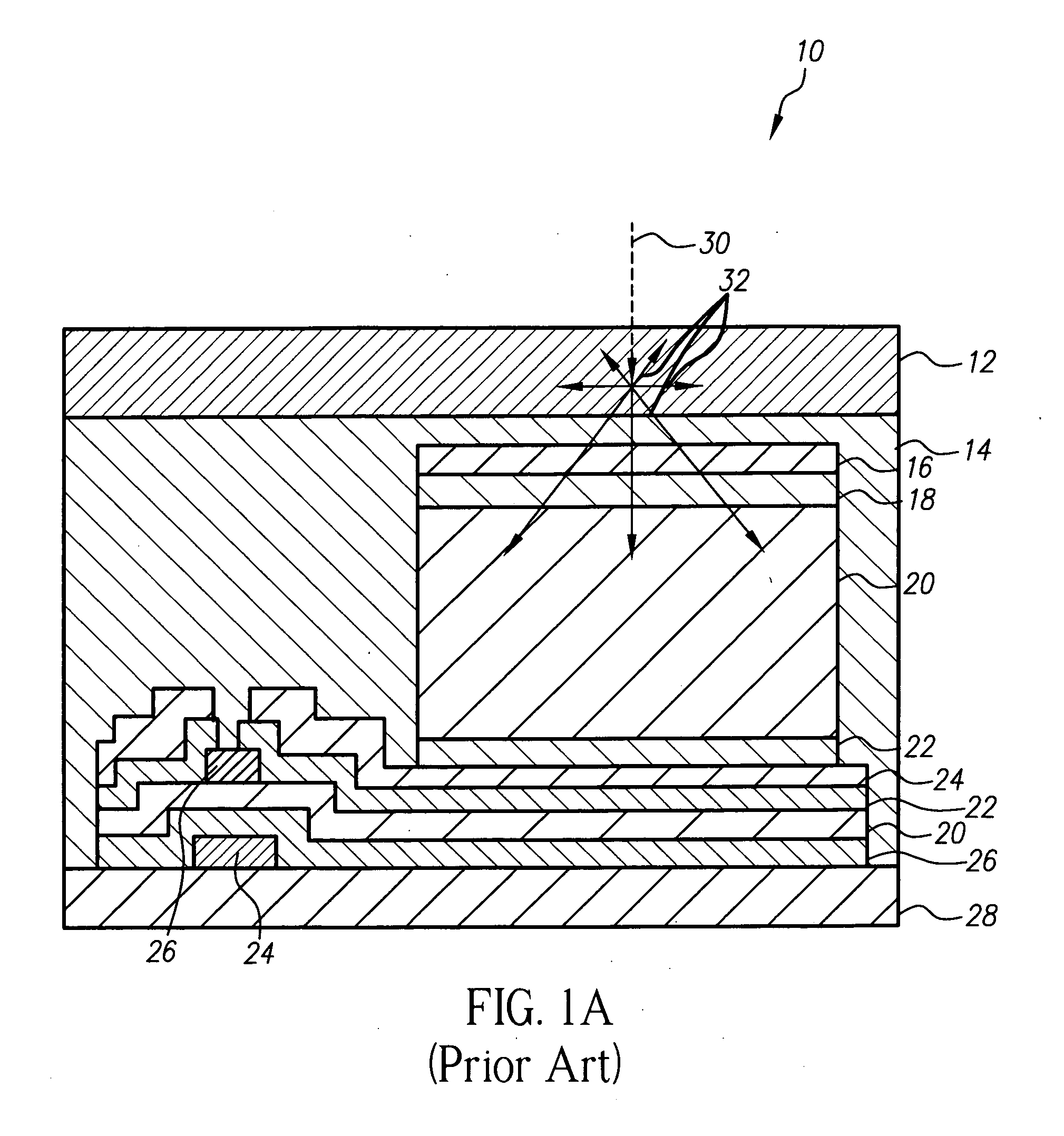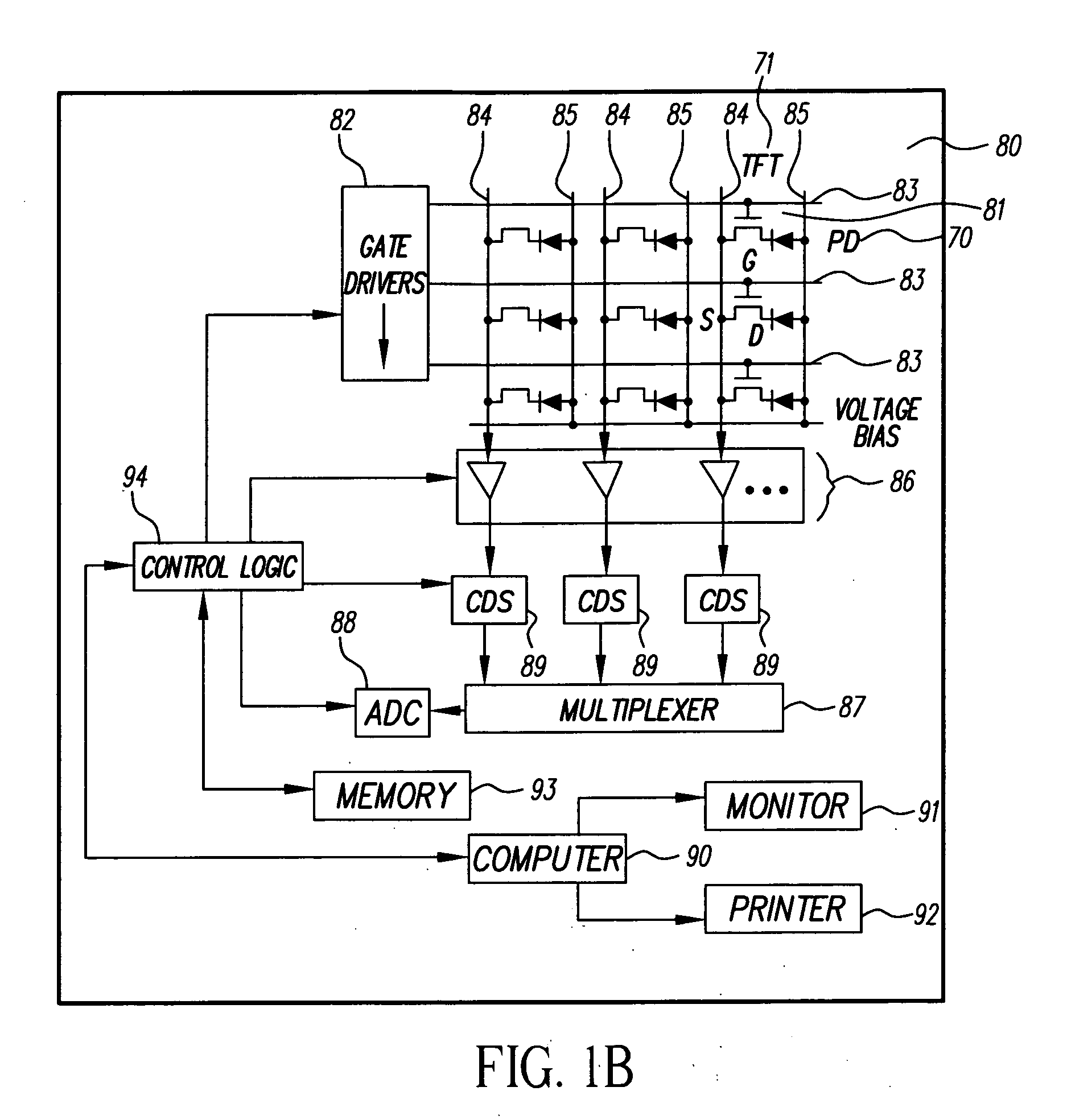Apparatus for asymmetric dual-screen digital radiography
a dual-screen digital radiography and apparatus technology, applied in the field of digital radiography, can solve the problems of double exposure technique sensitive to patient motion artifacts, misregistration between the two images, degrade the subtraction image, etc., and achieve the effect of high detective quantum efficiency, sharper images, and higher x-ray absorption
- Summary
- Abstract
- Description
- Claims
- Application Information
AI Technical Summary
Benefits of technology
Problems solved by technology
Method used
Image
Examples
Embodiment Construction
[0076]The following is a detailed description of the preferred embodiments of the invention, reference being made to the drawings in which the same reference numerals identify the same elements of structure in each of the several figures.
[0077]The present invention is directed to a digital radiography apparatus wherein an X-ray source projects an X-ray beam through an object to produce an X-ray image captured by a detecting member. In particular the present invention is directed to various embodiments related to indirect asymmetric dual-screen DR apparatus and single-exposure dual energy DR apparatus.
[0078]Indirect Asymmetric Dual-screen DR Apparatus
[0079]FIGS. 4-7 show diagrammatic views of a digital radiography apparatus in various embodiments in accordance with the present invention.
[0080]A first exemplary embodiment of the invention is illustrated in FIG. 4, where X-rays 102 are directed through object 104 to digital radiography imager 100 form an image. The digital radiography ...
PUM
 Login to View More
Login to View More Abstract
Description
Claims
Application Information
 Login to View More
Login to View More - R&D
- Intellectual Property
- Life Sciences
- Materials
- Tech Scout
- Unparalleled Data Quality
- Higher Quality Content
- 60% Fewer Hallucinations
Browse by: Latest US Patents, China's latest patents, Technical Efficacy Thesaurus, Application Domain, Technology Topic, Popular Technical Reports.
© 2025 PatSnap. All rights reserved.Legal|Privacy policy|Modern Slavery Act Transparency Statement|Sitemap|About US| Contact US: help@patsnap.com



